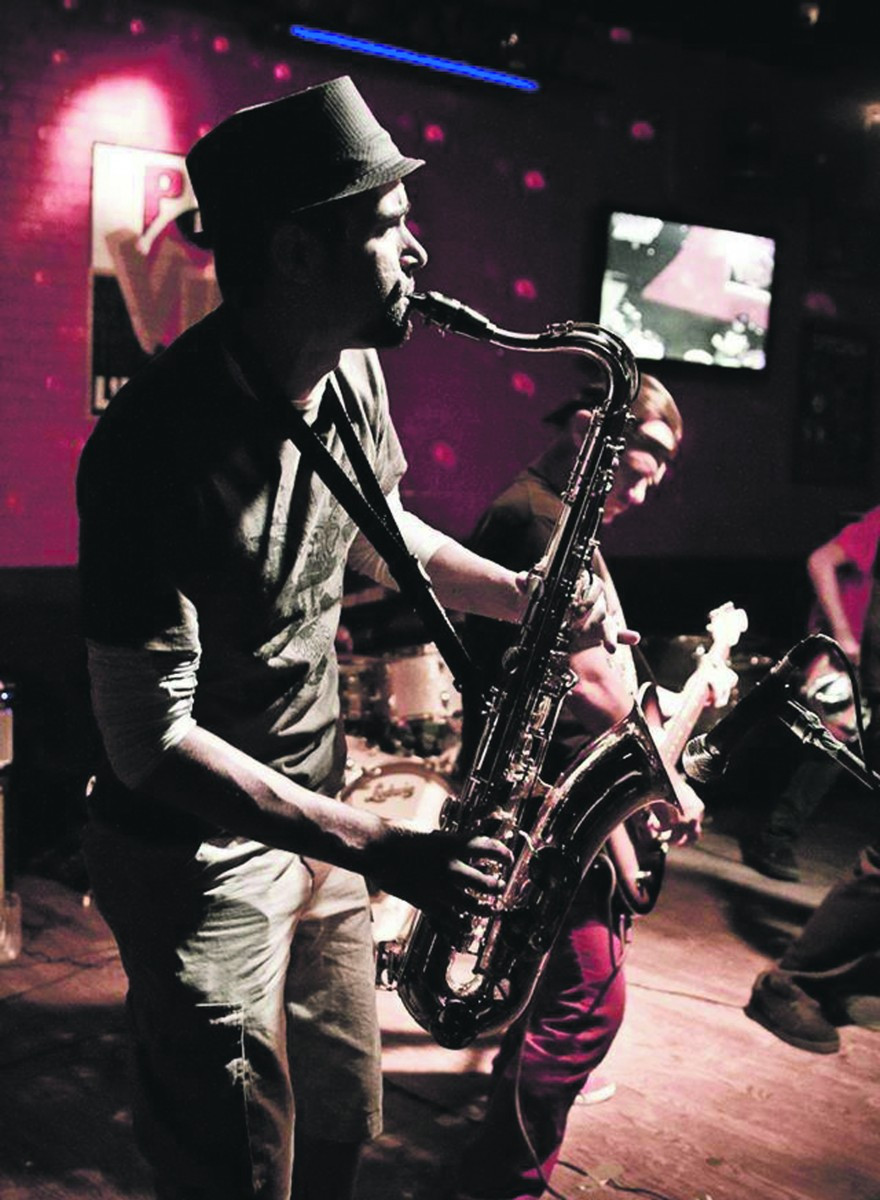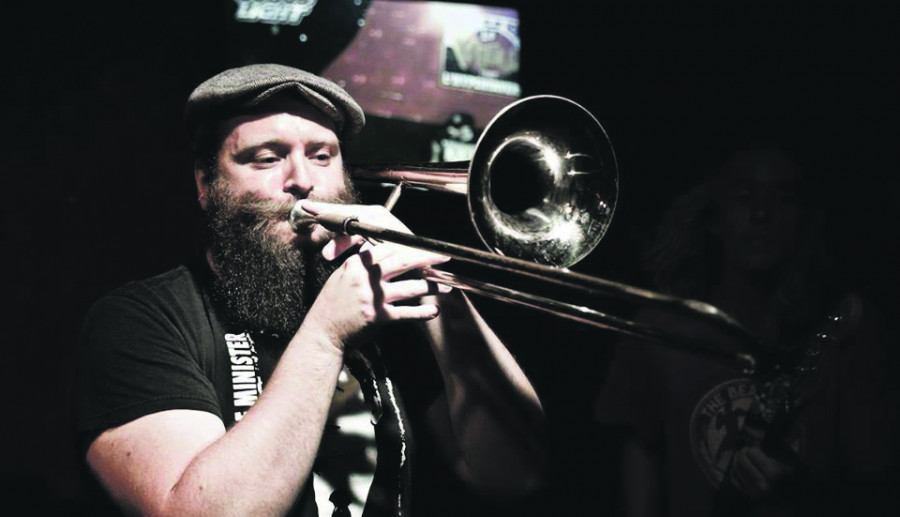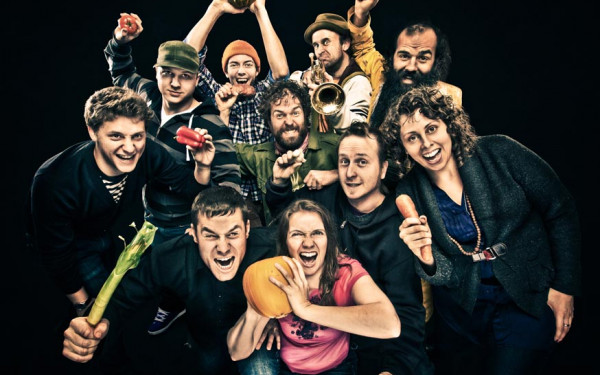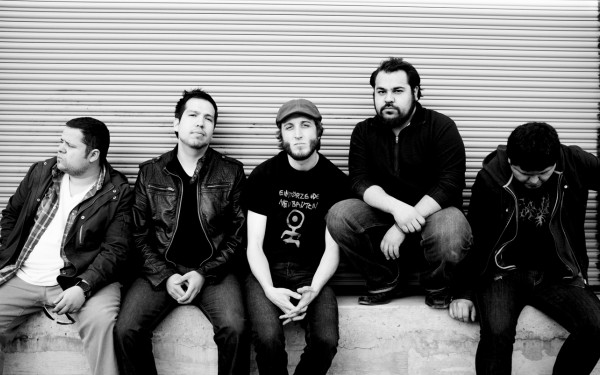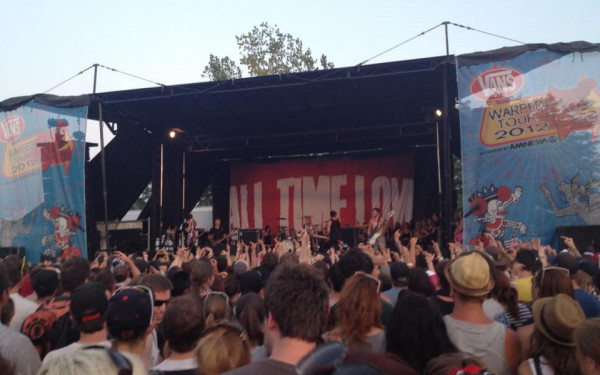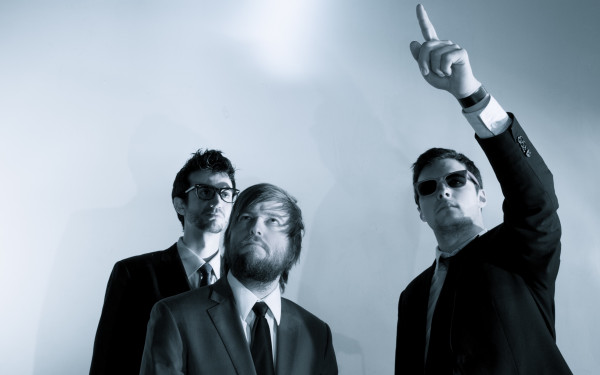Skanking the Night Away
Montreal SkaFest Brings Together the Upstroke Community for 5th Year
Dig up those old Hawaiian shirts and dust off that goofy fedora—Montreal’s premiere ska festival, SkaFest, has hit the city once again.
Ska music is an attractive hybrid that blends the upbeat intensity of punk, with the fun and laidback attitude of reggae. But it originated before either of those genres even existed—by Jamaican musicians trying to emulate the British pop music they heard broadcasted on the radio in the ‘50s.
Horns such as trombones and trumpets are also often thrown into the mix, making live shows a grand spectacle.
“Skanking” is a type of dancing popular at these shows, a mix between a silly chicken dance and moshing, which embodies the goofy fun spirit of ska music.
Popular ska bands today include Reel Big Fish, the Aquabats and Montreal’s The Planet Smashers, among many others.
Valerie Desnoyers, president and executive director of the festival and the Montreal Ska Society, is determined to keep the scene alive.
“Being at the festival and seeing how happy the bands are and how happy the crowd is […] makes it worth it. It’s just a big party,” Desnoyers told The Link.
“When you bring the whole community together and see that Montreal has something to offer, it works out.”
Ska fosters a vibrant core community, and while the genre’s popularity has dwindled over the years, solidarity among the die-hard skankers has only strengthened.
“The ska community is timeless,” said Desnoyers.
“There are people that were there 30 years ago, since the beginning […] and there are also the young people coming from the punk scene. They’re playing faster music that’s more energetic, but it’s still part of the scene.
“There’s people of every age, every origin,” she continued. “I think ska can appeal to anybody. It doesn’t go with certain values or beliefs or religions so it’s really accessible.”
Kristin “K-Man” Daniel, singer and guitarist of Montreal-based K-Man and the 45s, agreed, saying it’s easier to make friends at a ska show than nearly anywhere else.
“You’re just interested in having a really good time and you’ll meet people who want to have a really good time as well,” he said.
K-Man and the 45s have had two cross-Canada tours in the past six months, making friends and building their fan base all over the country.
“On the first tour you see all these people at your show, then the next time you come around town you see all the same people but you see their friends too,” K-Man said.
“It just grows, you just watch it expand.”
It’s that growing number of fans that the band has in mind when making new music.
“I try to write songs thinking about how it’s going to go over live,” said Daniel. “Live, you have people in front of you sweating it out and you want to be able to have that energy and songs that will deliver on that level as well.”
But as well written as a song may be, it’s nothing without a good performance.
“I think you have to give it everything you have every single time you play,” Daniel continued. “If I’m not drained at the end of a show I feel like I’ve ripped somebody off.”
But Daniel says ska shows have a way of energizing you, with the crowds and bands playing off each other.
“Sometimes the audience will give you that energy when you start feeling tired. They give it back and you take in their energy and mirror it right back on them,” he said.
The band’s latest album, The Ska-mones Vol. 1, is a tribute to American rockers The Ramones.
The album re-appropriates the classic punk anthems into ska jams, all while trying to stay true to its original intent.
According to Daniel, being respectful to the music means feeling it as if it were your own.
“Make it as real as possible to yourself,” he said.
“Do it with as much intensity as they might have done it when they wrote these songs. Treat them as fresh.”
Ska music today is indeed all about taking classic sounds and making them new—mixing reggae, punk, orchestral elements and even jazz opens up endless possibilities in music writing.
“The more things that you’re into, the more open-minded you’ll be. You’ll be touched by more cultures,” Daniel said.
“I grew up with a lot of older musicians that kept me grounded in the roots of the music, but then the street culture made a nice layer on top of that.”
Defending Ska-Punk
With constant blending and renewals, it seems the genre is perpetually moving forward—which is why both Daniel and Desnoyers reject the claim that ska is a genre that’s dying out.
“I think maybe we’re going towards something new […] but it’s definitely not dying,” said Desnoyers.
“We’re seeing more and more bands picking up the style and wanting to do ska so it’s in movement. It could be bigger, but I think it’s always going to stay underground,” she continued.
“I think the next few years are going to bring us some good stuff from Montreal.”
Daniel said that Montreal “is known as one of the best ska scenes around,” and that it’s the city’s dedication to the music that keeps SkaFest going.
“Montreal has a lot of talent [to offer],” said Desnoyers.
“I think everybody’s willing to put aside their own personal goals to make it work together.
“People are joining forces, putting the Montreal scene more on the map,” she continued.
The result is a festival that benefits everyone involved and strengthens the tight-knit community.
“As long as the community wants it to happen, we’re going to keep doing it,” Desnoyers said.
Montreal SkaFest // Oct. 16 to Oct. 20 // Club Soda (1225 St. Laurent Blvd.), Café Campus (57 Prince-Arthur St. E.) and others // 8 p.m. // $5 to $25


